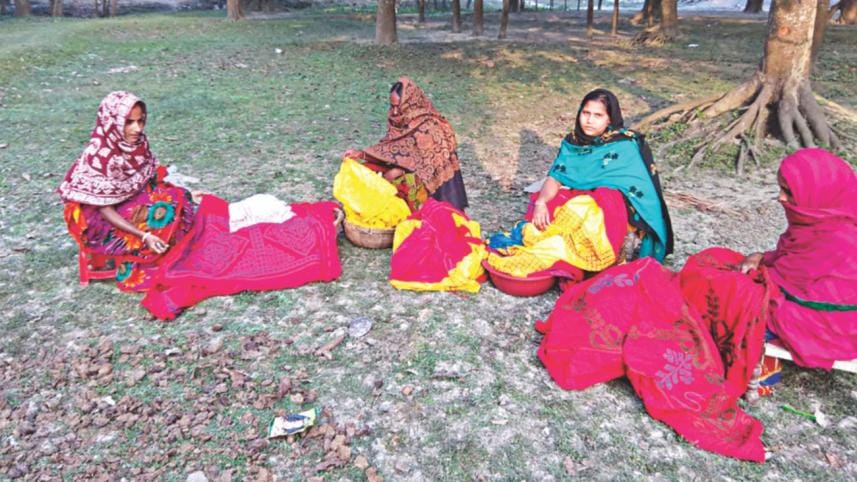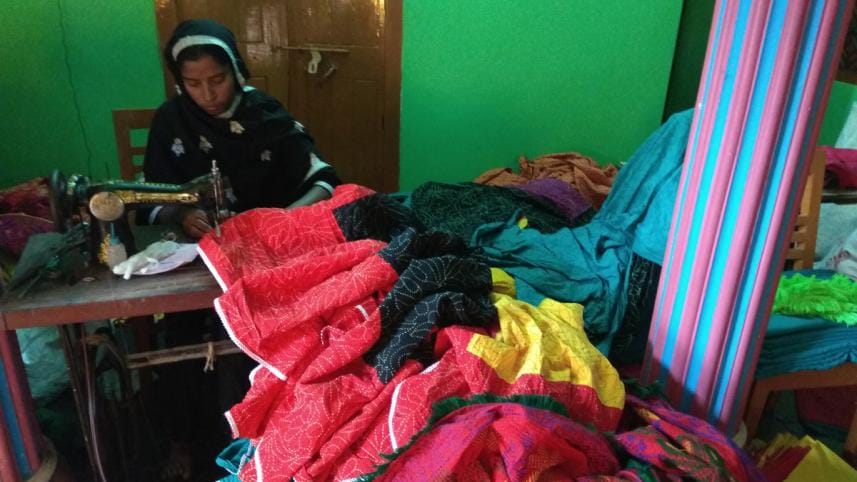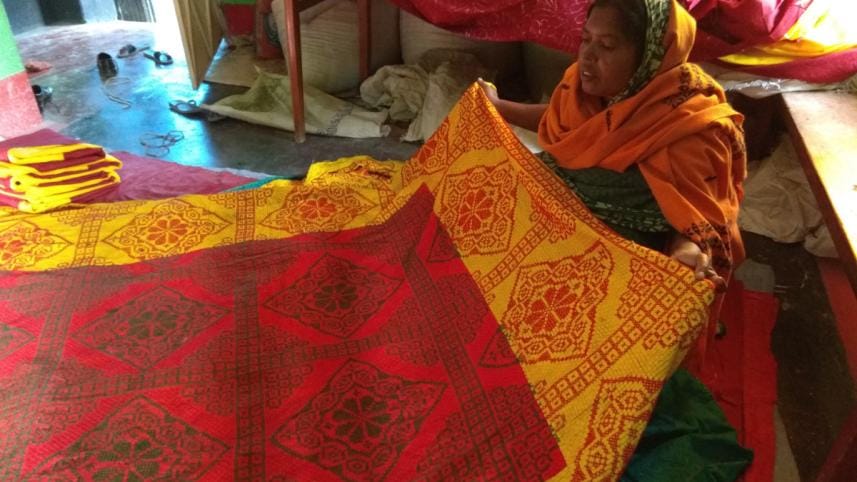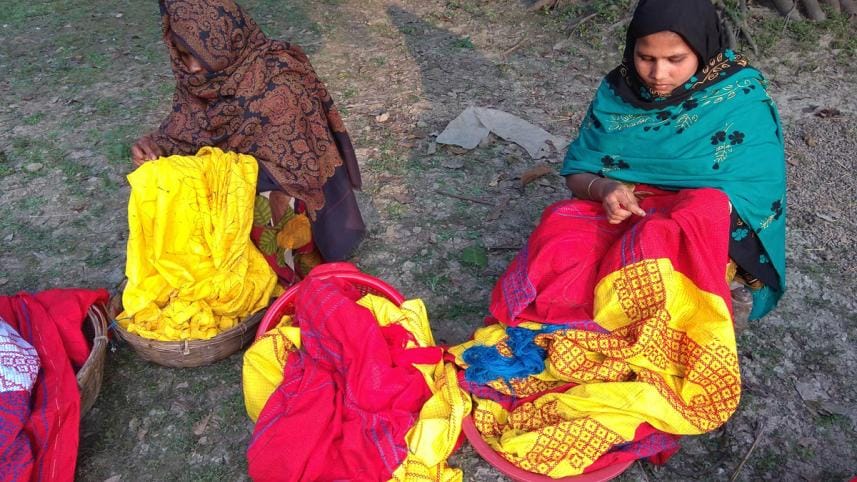Nakshi kantha tradition thrives in Chapainawabganj

For generations, heart and soul, many women in Chapainawabganj, as in some other parts of the country, have sewn nakshi kantha (embroidered quilt). More than just needlework, imbued in each design of coloured thread, embroidery and skilful stitch are the emotions, memories and dreams of the artisan. Once destined for family use, nakshi kantha are now the centre of a flourishing cottage industry, one that has transformed many a housewife into an entrepreneur.
“In this part of the world, people are known for their nakshi kantha skills,” remarks Seema Khatun, a housewife and nakshi kantha artisan from Sundarnagar village in Ghorapakhia union of Shibganj upazila. “From our rich artistic heritage we can earn handsomely.”
“I was inspired to sew nakshi kantha by other women in my area,” says Alera Begum, 50, from nearby Sat Roshia-Chama village. She doesn't only sew herself but also coordinates the efforts of several others. “I make up to Tk 8,000 per month from it.”

The income is appreciated. Alera raised her daughter single-handed. The family has struggled financially since Alera's husband died 22 years ago.
“A nakshi kantha takes between one and six weeks to make, depending on the design,” says Moyna Khatun from Chak village in Sadar upazila, who has been involved in the industry for around five years. Her husband works as a rickshaw driver. The income she earns is proving invaluable in covering the education costs of their three children.“
I sew once the housework is done,” says her neighbour Julekha Begum. She can expect to add up to Tk 2,000 per month to her family's income.
The finished nakshi kanthas are most often sold to wholesalers. According to a second Moyna Khatun, from Kalinagar village in Sadar upazila, each piece will cost around Tk 700 to make, to be sold for Tk 1,000 to Tk 1,500.

“I employ around 8,000 women directly,” says Abdul Mannan, also from Kalinagar, who established his business as a wholesaler in 2002. “I supply the fabric and yarn, and the women are paid between Tk 700 and Tk 1200 for each complete nakshi kantha, depending on the size.

His business, which handles as many as 9,000 nakshi kanthas per month, is doing well. Many are sent to Dhaka, Comilla, Chittagong and other districts. In Sylhet he has opened a sales showroom.

Attracted by the potential to work from home and the flexible hours, the nakshi kantha industry has already engaged thousands of women district-wide. But in Chapainawabganj, nakshi kanthas are precious in another way too: they are a quintessential expression of cultural identity.




Comments